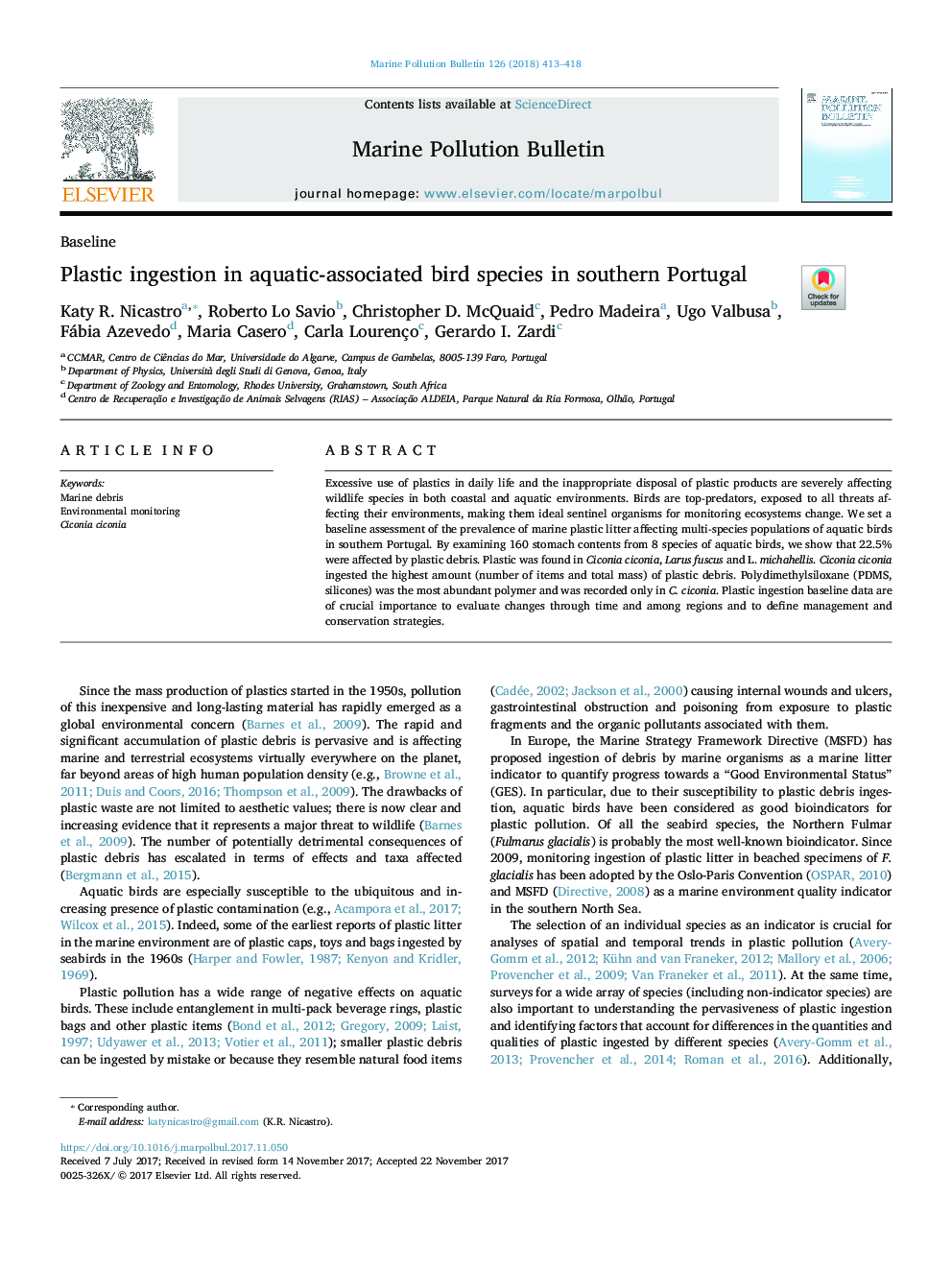| Article ID | Journal | Published Year | Pages | File Type |
|---|---|---|---|---|
| 8872228 | Marine Pollution Bulletin | 2018 | 6 Pages |
Abstract
Excessive use of plastics in daily life and the inappropriate disposal of plastic products are severely affecting wildlife species in both coastal and aquatic environments. Birds are top-predators, exposed to all threats affecting their environments, making them ideal sentinel organisms for monitoring ecosystems change. We set a baseline assessment of the prevalence of marine plastic litter affecting multi-species populations of aquatic birds in southern Portugal. By examining 160 stomach contents from 8 species of aquatic birds, we show that 22.5% were affected by plastic debris. Plastic was found in Ciconia ciconia, Larus fuscus and L. michahellis. Ciconia ciconia ingested the highest amount (number of items and total mass) of plastic debris. Polydimethylsiloxane (PDMS, silicones) was the most abundant polymer and was recorded only in C. ciconia. Plastic ingestion baseline data are of crucial importance to evaluate changes through time and among regions and to define management and conservation strategies.
Related Topics
Physical Sciences and Engineering
Earth and Planetary Sciences
Oceanography
Authors
Katy R. Nicastro, Roberto Lo Savio, Christopher D. McQuaid, Pedro Madeira, Ugo Valbusa, Fábia Azevedo, Maria Casero, Carla Lourenço, Gerardo I. Zardi,
